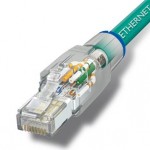The following topics are general guidelines for the content likely to be included on the lab exam. However, other related topics may also appear on any specific delivery of the exam. In order to reflect better the contents of the exam and for clarity purposes, the exam topics may change at any time without notice.
Candidates may be required to perform implementation, optimization and troubleshooting actions in each of the exam topics sections and should also be comfortable with both IPv4 and IPv6 concepts and application.
CCIE Security Lab Exam Topics v4.0
System Hardening and Availability
Routing plane security features (e.g. protocol authentication, route filtering)
Control Plane Policing
Control Plane Protection and Management Plane Protection
Broadcast control and switchport security
Additional CPU protection mechanisms (e.g. options drop, logging interval)
Disable unnecessary services
Control device access (e.g. Telnet, HTTP, SSH, Privilege levels)
Device services (e.g. SNMP, Syslog, NTP)
Transit Traffic Control and Congestion Management
Threat Identification and Mitigation
Identify and protect against fragmentation attacks
Identify and protect against malicious IP option usage
Identify and protect against network reconnaissance attacks
Identify and protect against IP spoofing attacks
Identify and protect against MAC spoofing attacks
Identify and protect against ARP spoofing attacks
Identify and protect against Denial of Service (DoS) attacks
Identify and protect against Distributed Denial of Service (DDoS) attacks
Identify and protect against Man-in-the-Middle (MiM) attacks
Identify and protect against port redirection attacks
Identify and protect against DHCP attacks
Identify and protect against DNS attacks
Identify and protect against MAC Flooding attacks
Identify and protect against VLAN hopping attacks
Identify and protect against various Layer2 and Layer3 attacks
NBAR
NetFlow
Capture and utilize packet captures
Intrusion Prevention and Content Security
IPS 4200 Series Sensor Appliance
(a) Initialize the Sensor Appliance
(b) Sensor Appliance management
(c) Virtual Sensors on the Sensor Appliance
(d) Implementing security policies
(e) Promiscuous and inline monitoring on the Sensor Appliance
(f) Tune signatures on the Sensor Appliance
(g) Custom signatures on the Sensor Appliance
(h) Actions on the Sensor Appliance
(i) Signature engines on the Sensor Appliance
(j) Use IDM/IME to the Sensor Appliance
(k) Event action overrides/filters on the Sensor Appliance
(l) Event monitoring on the Sensor Appliance
VACL/SPAN & RSPAN on Cisco switches
WSA
(a) Implementing WCCP
(b) Active Dir Integration
(c)Custom Categories
(d) HTTPS Config
(e) Services Configuration (Web Reputation)
(f) Configuring Proxy By-pass Lists
(g) Web proxy modes
(h) App visibility and control
Identity Management
Identity Based Authentication/Authorization/Accounting
(a) Cisco Router/Appliance AAA
(b) RADIUS
(c)TACACS+
Device Admin (Cisco IOS Routers, ASA, ACS5.x)
Network Access (TrustSec Model)
(a) Authorization Results for Network Access (ISE)
(b) 802.1X (ISE)
(c)VSAs (ASA / Cisco IOS / ISE)
(d) Proxy-Authentication (ISE/ASA/Cisco IOS)
Cisco Identity Services Engine (ISE)
(a) Profiling Configuration (Probes)
(b) Guest Services
(c)Posture Assessment
(d) Client Provisioning (CPP)
(e) Configuring AD Integration/Identity Sources
Perimeter Security and Services
Cisco ASA Firewall
(a) Basic firewall Initialization
(b) Device management
(c ) Address translation (nat, global, static)
(d) Access Control Lists
(e) IP routing/Route Tracking
(f) Object groups
(g) VLANs
(h) Configuring Etherchannel
(i) High Availability and Redundancy
(j) Layer 2 Transparent Firewall
(k) Security contexts (virtual firewall)
(l) Modular Policy Framework
(j) Identity Firewall Services
(k) Configuring ASA with ASDM
(l) Context-aware services
(m) IPS capabilities
(n) QoS capabilities
Cisco IOS Zone Based Firewall
(a) Network, Secure Group and User Based Policy
(b) Performance Tuning
(c) Network, Protocol and Application Inspection
Perimeter Security Services
(a) Cisco IOS QoS and Packet marking techniques
(b) Traffic Filtering using Access-Lists
(c)Cisco IOS NAT
(d) uRPF
(e) PAM – Port to Application Mapping
(f) Policy Routing and Route Maps
Confidentiality and Secure Access
IKE (V1/V2)
IPsec LAN-to-LAN (Cisco IOS/ASA)
Dynamic Multipoint VPN (DMVPN)
FlexVPN
Group Encrypted Transport (GET) VPN
Remote Access VPN
(a) Easy VPN Server (Cisco IOS/ASA)
(b) VPN Client 5.X
(c)Clientless WebVPN
(d) AnyConnect VPN
(e) EasyVPN Remote
(f) SSL VPN Gateway
VPN High Availability
QoS for VPN
VRF-aware VPN
MacSec
Digital Certificates (Enrollment and Policy Matching)
Wireless Access
(a) EAP methods
(b) WPA/WPA-2
(c)WIPS
Source: https://learningnetwork.cisco.com/community/certifications/ccie_security

Recent Comments